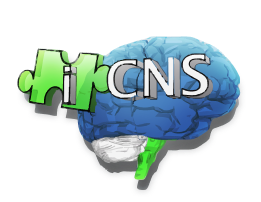FAQ
I strive to provide the most effective and comprehensive client care possible. I have found that the session limits, confidentiality issues, and pathology "labels" associated with taking insurance, can pose more of a hindrance to good client care than it does a benefit.
While session frequency and the number of sessions should be a collaborative decision between the client and the therapist, insurance companies frequently impose a session limit or require a specific treatment. This can undercut the effectiveness of the overall therapy process as well as remove the freedom of choice and control a client has over his or her mental health care.
In addition, insurance companies require a diagnosis code and, many times, a treatment plan for each client. This can result in what feels like an invasion of privacy as well as a feeling of being "labeled" or pathologized. Because my goal is to work in a holistic and non-stigmatizing manner, the requirements of insurance can pose a conflict of interest.
Finally, I view mental health treatment as not only an intervention but also a form of prevention. Even though paying out of pocket may feel overwhelming, when viewed as an investment in one's future, it can become a priority. Research indicates that those who invest time and money in mental health tend to have reduced healthcare costs as well as increased productivity and earning potential in other areas of their lives.
First of all, I welcome people of all faiths into my office, and I am happy to help anyone, regardless of religion, whether that be a denomination of Christianity or another faith all together.
However, while I do not label myself as a Christian Counselor, I am a Christian. I pray for each and every one of my clients and I am happy to discuss spirituality with you in session. I do not, however, preach at you. That is not my purpose. If you are not comfortable discussing spiritual issues in my office, that is fine, and I will not pressure you in any way. If you are open to including spirituality in our sessions, I am happy doing so.
NO! Neurofeedback does work. There is quite a bit of research on the effectiveness of neurofeedback on a wide variety of neurologically based issues. Often, people will experience and recognize changes within the first ten to twelve sessions and will choose to discontinue their treatment. The problem with this is that the brain has learned a lot of what it is being trained to do, but it has not solidified the lessons. This is why I will not do neurofeedback without a minimum of 20 sessions. That is the minimum needed to solidify the brain's learning.
Initial Consultation (2 hours): $300
qEEG (2 hour data collection, approximately 3-5 hours for analysis, and 1.5 hour review session): $750
Neurofeedback and Individual Psychotherapy: $185 per hour
Couples Psychotherapy: $200 per hour
I offer 10 and 20 session packages with discounts for neurofeedback only:
1 session discount for 10 session packages and 3 sessions discount for 20 session packages.
I charge more for couples because I take extra time outside of session to prepare and document couples sessions.
I do offer telehealth services, which include video conferencing and over-the-phone sessions for individuals and couples. However, the first session must be in person in order to meet ethical guidelines for telemental health.
I do NOT use Skype, FaceTime, or text messaging for these sessions or for any client to therapist contact as they are not HIPAA compliant and are not secure. Instead, I use a secure, encrypted, and HIPAA compliant, CLIENT PORTAL through portal.therapyappointment.com.
Please follow these guidelines:
1. Make sure you are alone in a quiet location where no-one else can overhear or view our session.
2. Check to make sure your device or laptop has sufficient battery-life or is plugged into the power outlet prior to our session.
3. Ensure that your computer or device has adequate internet connection prior to our session
4. Payment for a telehealth session is due on the day of the session.
